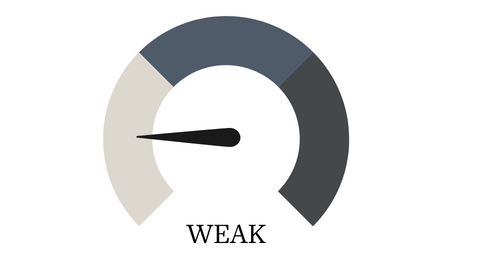Earthing is a unique complementary approach that involves making direct contact with the Earth's surface electrons. This practice, known as grounding, extends beyond traditional treatments and is often explored to mitigate symptoms and improve a patient's quality of life. Advocates of earthing suggest that it can offer numerous health benefits, including reducing inflammation and enhancing immune function, which are particularly pertinent for individuals undergoing cancer treatment.
Can Earthing Help Treat Cancer?
There is no evidence suggesting that earthing can treat cancer.
It has potential in enhancing general well-being and may indirectly support cancer care by improving sleep and reducing inflammation. The studies primarily highlight its benefits related to general health parameters that could support cancer recovery rather than directly influencing cancer itself. This underscores the potential of earthing as a complementary therapy in cancer care.
Rating of Evidence: Weak

The evidence supporting earthing as a treatment for cancer is WEAK. Current research primarily explores the general benefits of grounding on health, such as reducing inflammation and improving sleep quality, which are beneficial but not directly curative for cancer.
Pros:
- Positive Preliminary Findings: Initial studies show earthing enhances parasympathetic nervous system activity and improves heart rate variability.
- Anecdotal Support: Many individuals feel more relaxed and less stressed after earthing.
- Simple Practice: People can easily incorporate earthing into their daily routines as a natural, low-cost practice.
Cons:
- Limited Large-Scale Studies: Researchers must replicate most existing research on a larger scale for more convincing results.
- Placebo Effect: Psychological benefits might partially result from the placebo effect rather than earthing itself.
- Variability in Results: Individual responses to earthing vary widely, making it difficult to generalize findings.
Related Articles:
Can Grounding Help Heal Wounds Faster?
Does Earthing Help with Fatigue and Energy Levels?
Does Earthing Affect the Autonomic Nervous System?
Scientific Evidence

The study by James Oschman and colleagues presents a compelling argument for the multifaceted benefits of earthing on human health, particularly its potential role in modulating inflammation, immune responses, and wound healing (1). These areas are crucial since chronic inflammation is known to contribute to the progression of various chronic diseases, including cancer. The study suggests that earthing could offer a natural means to help reduce the chronic inflammation often associated with cancer and other autoimmune conditions. By improving the electron balance within the body, earthing might enhance the immune system's ability to manage inflammation more effectively, potentially impacting cancer progression and patient recovery.
A LinkedIn article highlighted public and scientific interest in the benefits of earthing, evidenced by studies suggesting improvements in pain management, sleep quality, and overall stress reduction (2). For cancer patients, these benefits are particularly relevant as managing pain and stress can significantly affect their quality of life and potentially influence treatment outcomes. The discussion in this article points to a growing acknowledgment in the scientific community that earthing might play a role in holistic health practices, which are increasingly recognized as important components of comprehensive cancer care.
Another article by Dr. Leigh Erin Connealy directly addresses the application of earthing in cancer care, proposing it as a complementary therapy that can offer significant benefits (3). It argues that earthing and grounding practices help create balance and calmness in the body, which is vital for patients dealing with the stress and physical toll of cancer treatments. The calming effect attributed to the natural electrical charge from the Earth could help alleviate symptoms associated with cancer treatments, such as inflammation and poor sleep, thereby enhancing the overall treatment process and aiding recovery.
These references collectively suggest that earthing might be a valuable adjunct therapy in cancer care, providing benefits beyond conventional treatment modalities. While the direct effects of earthing on cancer are not fully established and require more rigorous scientific validation, the existing evidence points to its potential to improve patient well-being and manage symptoms associated with cancer and its treatment.
These discussions underscore the need for more focused research to understand better how earthing influences health outcomes, particularly in oncology settings. Incorporating earthing into cancer care could represent a shift towards more integrative treatment approaches, emphasizing the importance of patient-centered therapies that support physical and emotional health during cancer recovery.
References:
- Oschman, James L, et al. “The Effects of Grounding (Earthing) on Inflammation, the Immune Response, Wound Healing, and Prevention and Treatment of Chronic Inflammatory and Autoimmune Diseases.” Journal of Inflammation Research, U.S. National Library of Medicine, 24 Mar. 2015, www.ncbi.nlm.nih.gov/pmc/articles/PMC4378297/.
- MEDvidi. “Dr. Lara’s Insights on Earthing.” LinkedIn, 7 Apr. 2023, www.linkedin.com/pulse/dr-laras-insights-earthing-medvidi/.
- MD, Dr. Leigh Erin Connealy, and About The Author Dr. Leigh Erin Connealy MD Leigh Erin Connealy. “Earthing and Grounding in Cancer Care: A Holistic Approach.” Cancer Center for Healing, 14 Aug. 2023, cancercenterforhealing.com/earthing-and-grounding-in-cancer-care/.
About the Author


